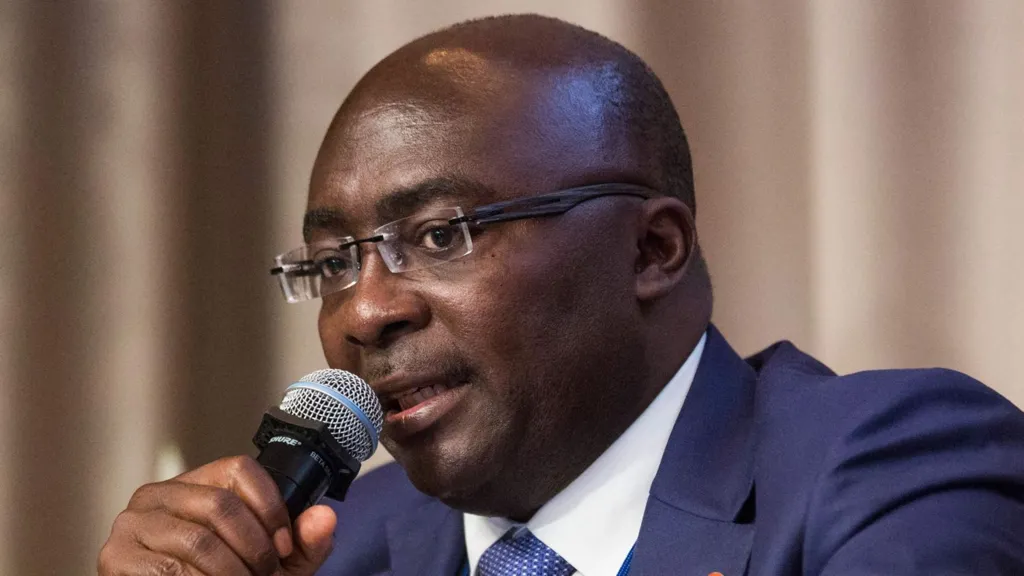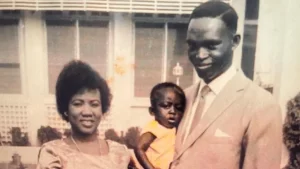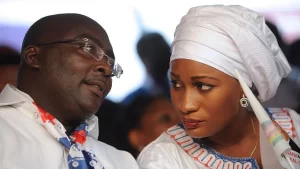From political outsider to Ghana’s ‘Mr Digital’
4 min read
AFP

AFP
Mahamudu Bawumia, Ghana’s vice president and presidential hopeful, has gone from being a political outsider to one of the country’s most influential figures. As the New Patriotic Party (NPP) candidate for the upcoming election, he could make history in December by becoming Ghana’s first Muslim president.
Bawumia, 61, is a well-known figure in Ghanaian politics, recognized for his intellect, his advocacy for digital transformation, and his role in steering the country’s economic management. Educated at Oxford University, he is often seen wearing his signature slim, rectangular glasses, earning him the nickname “Mr. Digital.” He has championed the idea of a technologically advanced Ghana, and his vision for a digital future is considered one of his most significant legacies.
However, Bawumia’s tenure as the head of Ghana’s economic management team has also made him a target of criticism, particularly as the country grapples with a crippling cost of living crisis. High inflation and national debt have put immense pressure on the Ghanaian people, and many blame the vice president for the economic turmoil.

Despite these challenges, Bawumia’s political career has been marked by steady growth. He first entered the political scene in 2008 as a relative unknown, when he was selected as the running mate for presidential candidate Akufo-Addo, who was then vying for the presidency. Though Bawumia had never held public office, his background in banking and economics—he had served as deputy governor of Ghana’s central bank—appealed to Akufo-Addo. Many party insiders were skeptical, doubting his lack of experience, but Bawumia’s campaign helped galvanize support for the NPP, even though they lost the election.
In 2012, Bawumia remained a central figure on Akufo-Addo’s ticket, and once again, they lost. This time, Bawumia played a key role as the NPP’s star witness in a legal challenge over the election results. His calm and confident demeanor under intense cross-examination won him admiration, with observers remarking that he had the qualities of a true leader.

In 2016, the NPP finally won the presidency, and Bawumia became vice president. Since then, he has played a major role in the government, particularly in managing Ghana’s economic policies. However, his leadership has been controversial. In 2022, Ghana experienced its worst economic crisis in years, with inflation reaching an alarming 54%. To stabilize the economy, the government sought a $3 billion loan from the International Monetary Fund (IMF), prompting widespread criticism of Bawumia’s economic stewardship.
In response, Bawumia defended his record, stating that the economic management team he led had no decision-making power, merely offering advice to the government. Despite his defense, critics, including political commentator Franklin Cudjoe, have questioned his credibility, accusing him of focusing on digitalization while failing to address economic mismanagement.
Alongside his economic role, Bawumia has been a vocal advocate for technological advancement. Under his leadership, Ghana has made strides in digital development, particularly in mobile connectivity. He is credited with initiating partnerships to establish the world’s largest drone-based vaccine delivery network, a project that has earned international praise. While many celebrate his achievements in digitalization, some, like Cudjoe, argue that these developments would have occurred regardless of his influence, and that Bawumia has been quick to claim credit for the government’s broader digital push.

Bawumia’s personal life has also played a role in shaping his public image. Married for over 20 years to Samira Bawumia, a former beauty queen and vocal advocate for the NPP, the couple has become a symbol of Ghanaian family values. Despite Ghana’s Christian majority, Bawumia’s Muslim faith has not posed a significant barrier to his popularity. Political analysts note that his appeal spans beyond religious lines, especially as he hails from northern Ghana—a region historically supportive of the NDC, the NPP’s main political rival.
With Bawumia now the NPP’s presidential candidate, the party hopes to make inroads into northern Ghana while maintaining its traditional support base in the south. Bawumia has been touring the country in what he calls the “possibilities bus,” promoting his vision of a prosperous and technologically advanced Ghana.
As Ghana’s vice president, Bawumia has become a polarizing figure. For some, he is a symbol of progress, digital innovation, and resilience. For others, he represents economic failure and political disappointment. But with the election drawing near, Bawumia remains determined, asserting that Ghana’s best days are ahead. His message of hope and possibility could resonate with many voters, as he embarks on his most important political campaign yet.